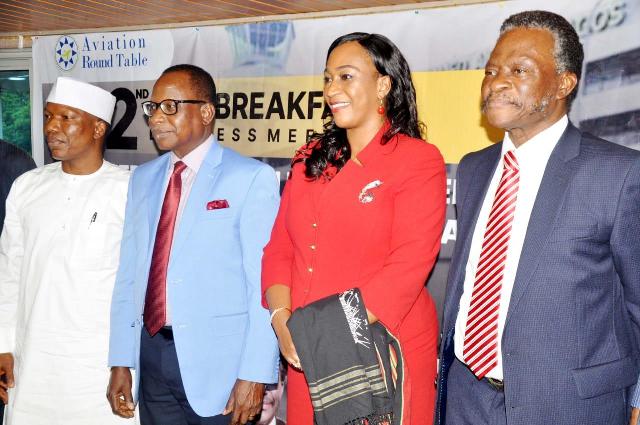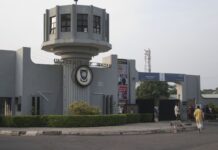
Former director general of the Nigerian Civil Aviation Authority (NCAA), Dr Harold Demuren, has said that Nigeria would have made the ‘US Country of Interest Watch List’ in Umar Abdulmutallab’s failed attempt to bomb a Northwest Airlines aircraft but for the information provided by agencies operating at the international wing of the Murtala Muhammed Airport, Lagos
Recall that Abdulmutallab had on December 25, 2009, attempted to detonate plastic explosives hidden in his underwear while on board Northwest Airlines Flight 253, en route from Amsterdam to Detroit, Michigan.
He had a valid Nigerian passport and valid U.S. tourist visa, and purchased his ticket with cash in Ghana on December 16.
He was arrested at Detroit Metropolitan Airport by U.S. Customs and Border Protection (CBP) officers after the incident and turned over to the FBI pending further investigation.
On February 16, 2012, the Federal District Court in Detroit convicted and sentenced Abdulmutallab to life in prison.
Speaking at the 2nd 2022 Breakfast Business Meeting organised by Aviation Round Table (ART) in Lagos yesterday, Demuren who was the director general of the NCAA at the time of the incident said the Nigeria Immigration Service (NIS) provided detailed entry and exit of the convict from the airport while the defunct concessionaire, MAVIS provided the advanced passenger information system (APIS) information with which NCAA worked with thus stopping Nigeria from being group among countries of interest by the US government.
He also noted that the installation of modern equipment revealed the entire activities of Abdulmutallab at the airport to the security team.
Demuren also stated that the closed circuit television camera footage provided by the Federal Airports Authority of Nigeria (FAAN) at the airport, extricated Nigeria from complacency in the heinous crime.
Armed with convincing proofs, Demuren said Nigeria was able to provide all the necessary documents as requested by the US, which led to the removal of Nigeria among the blacklisted countries by the US.
He, however, said the singular that act led to improved security at all the nation’s airports, especially the international aerodromes.
He also said that prior to the incident, Abdulmutallab’s father had informed the National Intelligence Agency (NIA) of the radicalisation of his son, but regretted that the security agency kept the information to itself.
He therefore called for cooperation and collaboration among the security agencies in the sector for improved security system.
“Up to the 1980s, there were no major aviation security challenges in Africa. Then came the 1993 Nigerian Airways Hijack (Lagos-Abuja Flight, diverted to Niamey, Niger Republic). After this was the 9/11 attack in the US, which changed the face of aviation security in the world. Layers upon layers of security were introduced in the US.
“In Nigeria, we had the Umar Farouk Abdul-Mutallab 2010 failed bomb attempt on KLM/NorthWest Airline. After this incident, NCAA ordered for enhanced multi-layered security measures at our airports, including body scanners.
“The Abdulmutallab incident was the saddest day of my life as the director general of NCAA. But the CCTV footage saved us. When we were asked to provide our evidence, we were able to show it to US and what we had then, some big aviation countries didn’t have them.
“I’ll like to appreciate the contribution of the various agencies at the airport, particularly FAAN for providing the CCTV footage. The Nigerian Immigration Service that provided detailed entry and exit from the airport and the MAVIS for providing the Advanced Passenger Information System (APIS) information and others. These were parts of the information NCAA used to remove Nigeria’s name from the ‘US Country of Interest Watch List,” he remarked.
For his part, former airport commandant, Murtala Muhammed International Airport, Lagos, Group Capt. John Ojikutu (retd) in his paper entitled ‘Civil aviation security defence layers and airport passengers’ facilitation,’ also said the Abdulmutallab incident led to increased security apparatus in the Nigerian aviation industry.
However, he said there were some lapses in the profiling of Abdulmutallab by the various bodies from the Department of State Services (DSS) to immigration, aviation security and even the airlines.
Ojikutu decried the multiple security desks at the airports saying they are a discouragement travellers and investors.
Also, Mr. Ayo Obilana, in his paper entitled ‘Addressing the challenges of passenger facilitation process in the aviation security regime,’ explained that in the US, there are only five security checkpoints; three in arrival and two at departure.
But, in Nigeria, he said there are no fewer than 20 security checks at arrival and departure and described the security system in the country as analog operations.
Earlier in his address, ART president, Mr. Gabriel Olowo said in view of the current security deterioration and challenges in Nigeria on farmlands, religious places, road, and rail transportation, it was pertinent for the group to continue to discuss the security situation in the industry.
Olowo lamented that the various communiqués arising from the past breakfast meetings of ART were not implemented by the government.
Nevertheless, he said the aviation think-thank would remain undaunted in its mandate propagate safety and security in the sector.























































